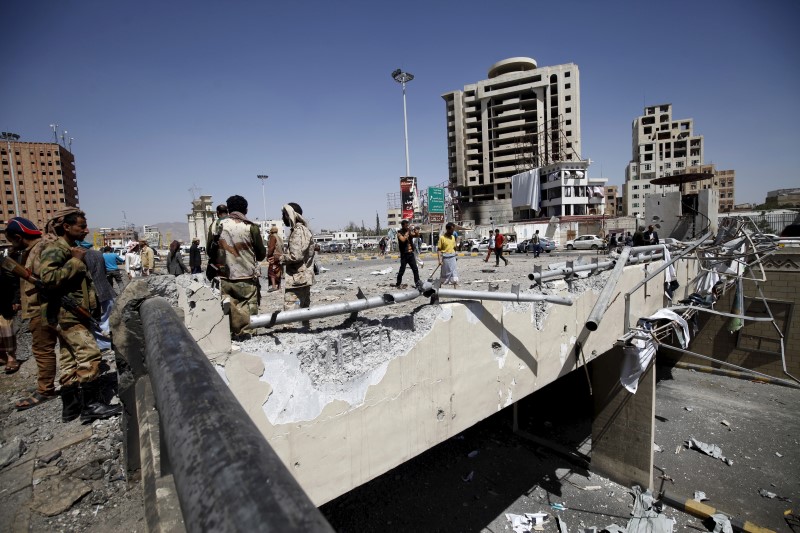DUBAI (Reuters) - A senior Houthi leader said efforts to convene U.N.-backed peace talks for Yemen were failing and blamed the United States and Saudi Arabia for continued aggression.
The U.N. envoy Ould Cheikh Ahmed said last week he was hoping to begin preparatory talks with the government and Houthis separately and expected formal talks between the sides "in the coming weeks".
"All understandings for a political solution leading to the cessation of aggression have failed," Houthi spokesman Saleh al-Samad wrote on Facebook (O:FB).
"Statements put out by the media of the aggressor do nothing but deceive and mislead."
A Saudi-led coalition has been carrying out air strikes on Houthi positions for seven months, seeking to restore the Yemeni government forced into exile last year after the Iran-allied rebels took over the capital of Sanaa.
The Houthis accuse the Saudi coalition of acting to further U.S. ambitions to dominate the region.
Saudi Foreign Minister Adel al-Jubeir told a news conference in Riyadh on Thursday that the bombing campaign may soon end, noting the acceptance of U.N. Security Council Resolution 2216 by the Houthis and affiliated militias.
The U.N envoy wants the talks to focus on main elements of the resolution - withdrawing militias from key cities, releasing prisoners, returning heavy weapons seized from the army, improving the humanitarian situation and resuming dialogue.
Houthi leaders endorsed the plan in early October and agreed to join the U.N.-backed talks.
But Samad's statement called for the Houthis to intensify their bid for power.
"We should be patient and move with strength and courage in the face of aggression, to fortify our country against domination," he wrote.
"We must redouble our efforts and exert ourselves to the utmost, ensuring the sacrifices made by our people over the past months do not go to waste."
Previous U.N.-sponsored peace talks faltered in June after President Abd-Rabbu Mansour Hadi's government demanded the Houthis pull out of cities captured since last September as a precondition for a ceasefire.
The Saudi-led coalition has since made progress on the battlefield, taking control of the southern port city of Aden in July and claiming territory in Taiz in the past week.
But the Houthis retain control of much of Yemen, despite almost daily air bombardment. The fighting has killed some 5,600 people in the Arabian Peninsula's poorest country.
